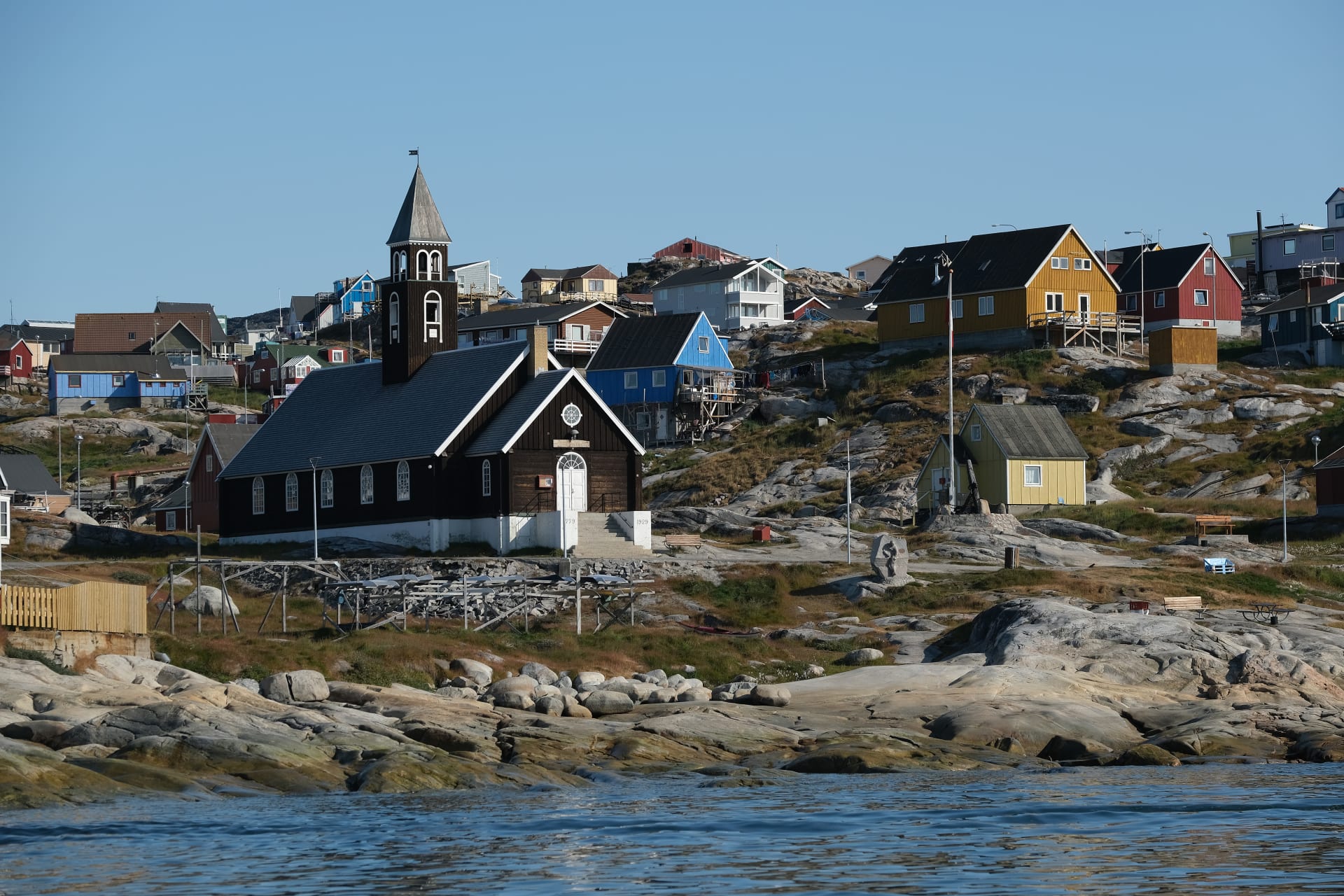Danish PM's Blunt Message To Trump: Greenland Remains Off The Market
A Geopolitical Tug-of-War
On August 18, 2019, Danish Prime Minister Mette Frederiksen unequivocally dismissed President Trump's proposal to purchase Greenland, an autonomous territory within the Kingdom of Denmark. In an interview with The Wall Street Journal, Frederiksen firmly stated, "Greenland is not for sale and Greenland is not Danish. Greenland belongs to Greenland." This blunt message echoes the sentiment of Greenland's own Premier, Kim Kielsen, who has repeatedly rejected the notion of selling the world's largest island.
Trump's interest in Greenland stems from its strategic location and abundant natural resources, particularly its untapped reserves of rare earth minerals. Rare earth minerals are essential for the production of high-tech electronics and renewable energy technologies. However, Denmark's unwavering position is based on Greenland's right to self-determination and the potential environmental risks associated with large-scale mining operations in the pristine Arctic environment.
Greenland's Complex Status
Greenland is an autonomous territory within the Kingdom of Denmark, meaning it has internal self-government but relies on Denmark for foreign affairs and defense. While Greenland remains under Danish sovereignty, it has been pursuing increased autonomy over the past several decades. In 1979, Greenland gained home rule, and in 2008, it achieved increased autonomy through the Self-Government Act. This act granted Greenland control over its natural resources, including oil and minerals.
Despite its autonomous status, Greenland's security and foreign policy remain the responsibility of Denmark. This complex arrangement has implications for the United States, which has a long-standing military presence in Greenland, including the Thule Air Base, essential for U.S. surveillance and missile defense operations.
U.S. Strategic Interests
The United States has maintained a strategic interest in Greenland since the Cold War era. Thule Air Base has been a critical asset in U.S. surveillance and missile defense systems. Additionally, Greenland's location at the crossroads of the Atlantic and Arctic oceans makes it strategically valuable for both commercial and military purposes.
In recent years, the U.S. has expressed concern about Russia's increasing presence in the Arctic region, including its military exercises and scientific research. The Trump administration's Arctic strategy emphasizes the importance of maintaining a "free and open" Arctic, which includes promoting stability and preventing any single country from dominating the region.
Environmental Concerns
The potential environmental risks associated with large-scale mining operations in Greenland are a major concern for both Denmark and Greenland. The Arctic environment is fragile and vulnerable, and mining activities could have devastating consequences for wildlife, ecosystems, and indigenous communities.
Greenland is also committed to combating climate change and protecting its pristine natural environment. The country has set ambitious goals for reducing greenhouse gas emissions and promoting sustainable development. The potential environmental impacts of mining operations conflict with these commitments.
Perspectives and Reactions
The reaction to Trump's Greenland proposal has been mixed. Some commentators have expressed support for Denmark's position, emphasizing Greenland's right to self-determination and the importance of protecting the Arctic environment.
Others have argued that the United States has legitimate strategic interests in Greenland and that negotiations should continue. They argue that Denmark and Greenland could benefit from increased investment and infrastructure development.
The Greenlandic people have expressed a range of views on the issue. Some support increased autonomy and economic development, while others are concerned about the potential environmental risks and the potential loss of Greenland's unique culture and traditions.
Implications and Conclusion
The Danish Prime Minister's blunt message to Trump underscores the complex geopolitical dynamics surrounding Greenland. The island's strategic location, abundant natural resources, and unique environmental challenges make it a focal point for competing interests.
Denmark's unwavering position reflects Greenland's right to self-determination and its commitment to protecting its natural heritage. The United States' strategic interests in Greenland and its concerns about Russian expansion in the Arctic region will likely continue to shape the relationship between these countries.
The Greenland saga highlights the tension between economic development, national interests, and environmental protection. As the world grapples with climate change and the need to transition to clean energy, the Arctic region will play an increasingly important role. It will be essential to find ways to balance economic development with the preservation of this fragile and pristine environment.
Read also:
Trump Designates Cryptocurrency A National Priority
Packers' Jaire Out, Doubs Returns: Concussion Protocol Cleared

